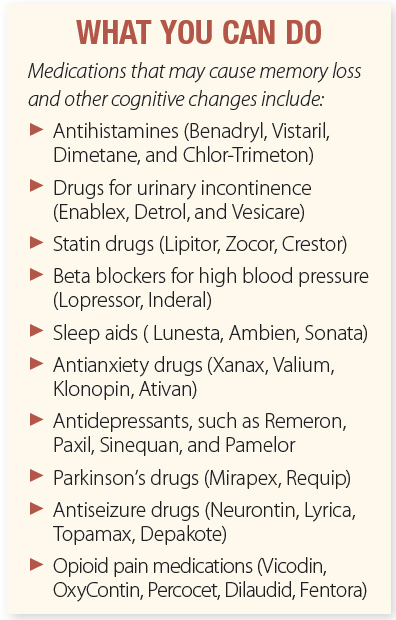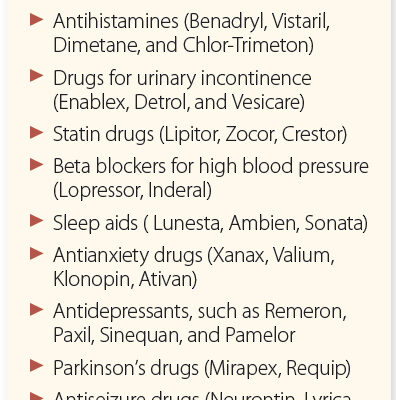Memory Problems Have Many Causes Besides Dementia
Do you stop talking mid-sentence because you can’t find the right word, or forget where you put your purse or glasses? Don’t worry; it’s probably not dementia—but there are a number of factors that can affect brain function.
“When older adults notice memory lapses, they often think it could be a sign of Alzheimer’s disease,” says Lisa D. Ravdin, PhD, a neuropsychologist at the Weill Cornell Memory Disorders Program. “But there are multiple possible causes of memory loss and cognitive decline in addition to dementia. This is why it’s important to report concerns about memory and thinking to your doctor— so he or she can try to determine what is causing the changes.”
Aging Does Affect the Brain
Dr. Ravdin says that, at age 60, it is not unusual to have trouble recalling the name of a person you met last week. The most common complaint she hears is problems with “word finding”—the inability to come up with the right word. Or perhaps you’ve become more absentminded about when appointments are or where you put some paperwork. Exactly when these changes happen differs from person to person, she says.
Health Issues Can Affect Memory
A spectrum of diseases and health problems can cause memory issues. Abnormal thyroid function, stroke, multiple sclerosis, and lupus have all been linked with a decline in cognitive function. And many women report poorer memory in their postmenopausal years.
Physical ailments such as arthritis, heart disease, and cancer can distract you, and worrying about your future health, your spouse, your kids, or any number of other things can take your attention away from the present. Dr. Ravdin explains that the brain’s processing speed slows as we get older, and that staying focused on one thing at a time is key to getting new information embedded in memory.
Unfortunately, the older you get, the more likely you are to suffer from chronic pain. “Pain can interfere with your concentration, and it can diminish the ability to learn and adapt to new information and make decisions,” says Dr. Ravdin.
Mental health can affect memory, too. Mood disorders such as depression and anxiety can cause problems with memory, making and executing plans, problem-solving, and staying on task.

It Might Be Your Meds
Several types of medications affect memory and cognition. For example, many cancer patients who undergo chemotherapy treatment report having “brain fog.”
If you begin to notice memory problems shortly after beginning a new medication, ask your doctor of pharmacist if the medication may be the cause. And be sure to tell your doctor about all of the drugs you are taking, even if they are over-the-counter remedies or nutritional supplements, since drug-drug interactions sometimes affect brain function.
Other Memory Modifiers
Life factors, including chronic sleep problems, high stress, uncertainty about the future, and changes in environment all can disrupt memory. The loss of a friend or family member can trigger feelings of grief and interfere with clarity and judgment. Even retirement can affect memory due to a decrease in mental activity. Both hearing loss and impaired vision have been associated with a higher risk of cognitive decline, although when these conditions are corrected, the rate of cognitive decline slows. Even your diet may affect your brain function. For example, if you’re not getting enough vitamin B12, you may have difficulty thinking clearly. (However, if you don’t have a B12 deficiency, taking a supplement won’t help your memory.)
Time for Testing
When forgetting disrupts normal activities, like taking daily medications and paying bills on time, it’s time to speak to your doctor.
If you notice a loved one repeating the same questions, becoming confused about time or place, or being unable to recall significant life events, it’s time for a professional evaluation of their cognitive function.
The post Memory Problems Have Many Causes Besides Dementia appeared first on University Health News.
Read Original Article: Memory Problems Have Many Causes Besides Dementia »


